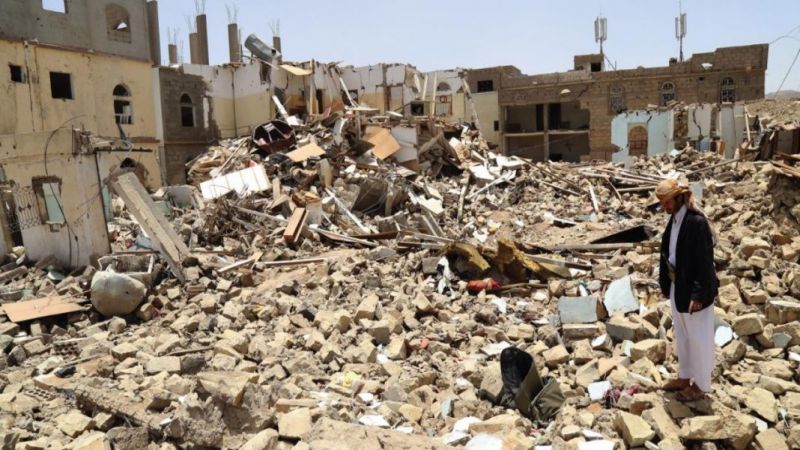
By Mark Weisbrot
Sometimes the most important stories about what our government is doing don’t get a lot of media attention. That’s the case now, when the Senate is about to hold a historic vote that could decide whether millions of people live or die in the near future. The US military is directly participating in a war that has pushed those millions to the brink of starvation and caused the worst cholera outbreak in modern history.
The war is in Yemen, and Saudi Arabia is leading the bombing and blockade that is denying people medicine and food as well as the fuel and infrastructure they need to pump clean water. The deprivation and destruction led to the cholera epidemic, which has sickened a million people and killed thousands. American military planes are not only providing midair refueling to the Saudi bombers but helping them with intelligence and targeting.
This constitutes military involvement under the 1973 War Powers Resolution, as well as Article I, Section 8 of the US Constitution, neither of which allows the executive branch to engage in such hostilities without the authorization of Congress. Any doubts about the constitutionality of US participation in the Saudi attempt to “starve Yemen into submission,” as a November New York Times editorial-board headline described it, were put to rest by a vote in the House of Representatives in November. The House voted 366 to 30 for a resolution that declared US military involvement to be unauthorized.
It is therefore illegal under US law. On February 28, Democratic Senators Bernie Sanders and Chris Murphy and Republican Senator Mike Lee introduced a bill to put an end to this illegal war. Under the War Powers Resolution, the Senate majority leaders cannot block a debate and vote on this legislation. And a number of experts believe it could pass; for one thing, the last vote in the Senate on arms sales to Saudi Arabia, in June, passed by a margin of only 53-47.
But the Saudis have a powerful lobby: They spent $16 million last year on lobbying and public relations that was recorded under the Foreign Agents Registration Act. This does not include other spending, such as contributions to think tanks (and that of their allies such as the United Arab Emirates). And along with the Saudis are the big military contractors that profit from these weapons sales.
On the other side, members of Congress, as well as antiwar and other public-interest groups have mounted an offensive of their own to publicize the horrors, illegality, and targeting of civilians in this war. (People can call their senators at 1-833-786-7927, with helpful talking points supplied here; and thousands have done so.)
On March 8, Republican Senator Todd Young and Democratic Senator Jeanne Shaheen introduced a new bill that poses a grave threat to this historic effort to stop the war. The bill would require the secretary of state to submit certification to determine “whether the Government of Saudi Arabia is undertaking: (1) an urgent and good faith effort to conduct diplomatic negotiations to end the civil war in Yemen; and (2) appropriate measures to alleviate the humanitarian crisis in Yemen.”
Of course, the secretary of state could simply make this certification. We have seen this trick many times. In the 1980s in El Salvador, where the US-funded government sponsored death squads that were murdering civilians by the thousands, Congress passed a law saying that the president had to certify every six months that the Salvadoran government was improving its human-rights record. President Reagan did this, and the murders and other horrific atrocities, aided by US tax dollars, continued.
We can expect the same result going forward if the Young-Shaheen bill is passed. Most recently, the Trump administration has followed that same pattern in Central America: Just two days after the Honduran government was widely seen as stealing the presidential election, and despite worsening human-rights abuses, the administration certified that the government was combating corruption and supporting human rights.
Antiwar and humanitarian groups are trying to get Senators Young and Shaheen to withdraw their “compromise” bill. This is very important, because even if the Sanders-Lee bill is voted on separately—or even first—the presence of the “compromise” bill will tempt those who want the US military to continue its participation in the Saudi war to use that bill for political cover. Senator Young had been previously lauded by aid groups for his efforts to persuade the Saudis to ease their blockade on food and medicine. But these groups, as well as many other observers, will see this latest move as having the opposite effect, by helping to prolong the war.
Anthony Lake, the executive director of UNICEF, said there was one clear way to end the man-made disaster: “Stop the war.”
Source: The Nation, Edited by Website Team